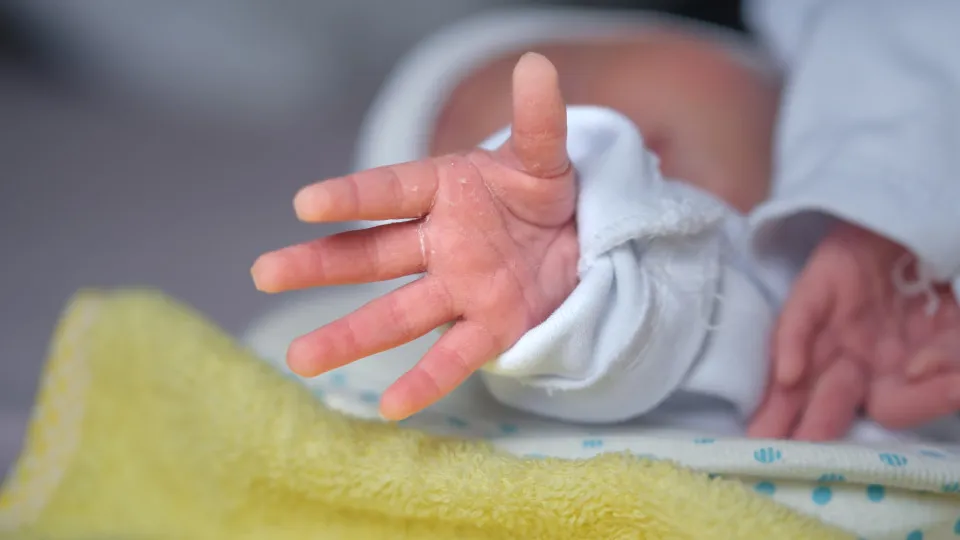
Last week, a newborn less than 24 hours old was abandoned at the door of the Leiria Firefighters’ station. This incident reopened the dialogue on why a mother might abandon her child. While some criticize the mother, others argue that the issue stems from a lack of support and connection, suggesting it might be an act of “desperation.”
But what does the law say? How is the child protected? What consequences and rights do the parents face for this action? Notícias ao Minuto sought insights from the President of the Portuguese Bar Association, João Massano.
What crime does a parent commit when abandoning an infant, for example, at a fire station?
This question requires examining a social and legal chasm. Abandoning a baby — under omission, shame, helplessness — does not merely close a door, it thrusts the child into a void of danger. Legally, this act constitutes the crime of exposing or abandoning a minor whenever the child’s life, health, or integrity is endangered without assistance. Yet, the answer is not solely criminal. Abandoning a baby is also a ‘situation of danger’ under our Child and Youth Protection Law (LPCJP). The jurisprudence is unequivocal: abandonment is grounds for urgent protective measures, such as immediate placement and, if legal criteria are met, entrustment for adoption. Justice must swiftly respond; it cannot remain indifferent.
What legal processes and penalties might the perpetrators face?
We speak of two intersecting domains: civil guardianship and criminal. Within guardianship, the system acts urgently — processes for promotion and protection, residential or family care, and even entrustment for adoption if the child’s best interest is at stake. Parental responsibilities may be suspended or revoked. On the criminal side, investigations can determine if exposure, abandonment, or mistreatment occurred. Penalties depend on the specifics: the danger created, whether harm occurred, and efforts made to remedy the situation. Courts repeatedly assert that when real danger exists, the path of entrustment for adoption sometimes remains the sole option to protect those unable to seek help themselves.
If a parent retracts the decision to abandon their child, does it create a ‘criminal record’? Are they flagged, or do they have a right to be forgotten?
A criminal record only arises with a criminal conviction. Without a finalized judgment, no record exists. In guardianship matters, records persist as long as the child is deemed at risk, but this is not a criminal record — they are necessary processes for court evaluation. Reversing the decision may not erase everything: the court assesses whether the risk situation has ceased, if emotional bonds are preserved, and if family conditions have been restored. However, in child protection matters, there is no ‘right to be forgotten’ — the child’s best interest always prevails. Here, the law does not protect memories; it safeguards futures.
What rights do parents who abandoned their children retain?
Parents retain the right to be heard, participate in proceedings, advocate for less severe measures, or seek support to rebuild parental skills. They can even retain visitation rights with their child, provided it does not conflict with the child’s interest.
And the abandoned babies? How should they be protected?
Regarding children, the law is unequivocal: they must receive comprehensive and urgent protection — safety, health, affection, and a stable life plan, preferably within a family. But the law is not a menu: protection paths are chosen based on proportionality and timeliness, always under the watchful eye of the child’s best interest. The failure lies not in the lack of instruments, but in the institutional courage to use them. As long as babies are left at the doorstep of neglect, our system is complicit in their abandonment. In the end, harsh truths persist: social and institutional silence protects no one. Every abandoned child signifies an empty seat in the nation’s collective future. In light of this void, averting one’s gaze is not an option — action is mandatory.
A report highlights that in six years, 50 babies were abandoned at birth or within their first six months of life in Portugal, grim situations faced by mothers in profound distress and anguish, seeing no other way out.
The most recent case occurred last Monday in Leiria. A 27-year-old woman, a nurse by profession, left her newborn, less than 24 hours old with an umbilical cord still attached, at the doorstep of a fire station.
Inside the bag with the baby were diapers, a blanket, and milk. The child was warm and well-cared for. Surveillance cameras captured the mother hesitating and in tears before leaving.
A report from a local newspaper indicates that, although she has been named a suspect, the mother is visiting her child and may even retain custody. Currently, the newborn is in foster care.
The same source revealed over the weekend that this supposed nurse had another child a year ago at Beja Hospital’s maternity ward and did not remain to care for him either.
At that time, the woman lived and worked in Sines, went to Beja Hospital for childbirth, stayed with the child in the first few days but then departed, leaving the newborn to be directed towards adoption.




